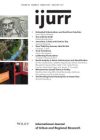Our experience of teaching a graduate‐student module entitled ‘Global Cities’ in Singapore forms the starting point for reflection on the limitations of the global‐ and world‐cities paradigms. Otherwise varied strands of critique, we argue, may be understood in terms of a common tendency in Anglophone urban and regional research. We term this tendency ‘metrocentricity’. While this intervention in many ways echoes important existing critiques (Robinson, 2006; Roy, 2009), it is intended to call attention in particular to the need for alternative practices or ways of doing urban and regional research. After identifying metrocentric tendencies, we consider how teaching and research might be (re)oriented both conceptually and methodologically beyond metrocentricity. In making this case, we invoke insights from feminist geographies that view research as embodied work. Valorizing the diverse, situated practices and engagements of a range of actors — including but not limited to academics — is a key starting point for less metrocentric urban and regional studies.
Details
Written by:
TIM BUNNELL, ANANT MARINGANTI
Digital Object Identifier (DOI)
10.1111/j.1468-2427.2010.00988.x
About DOI
Read full article as PDF
Read full article as HTML
See the references for this article
